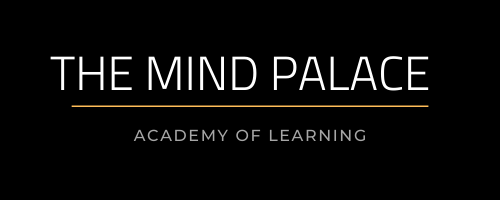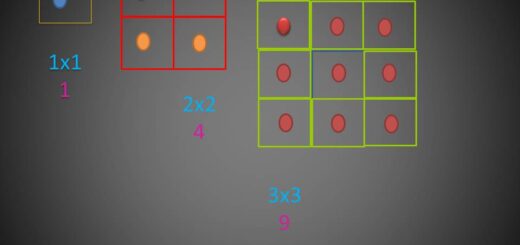BUTTOO by Toru Dutt – Summary of the Poem

“Oh Master, unto thee I came
To learn thy science. Name or pelf
I had not, so was driven with shame
And here I learn all by myself.
But still as Master thee revere,
Explanation: In this stanza, a student named Buttoo goes to his master to learn from him. Buttoo doesn’t have a famous name or lots of money, so he feels a bit embarrassed. However, he is determined to learn on his own. Even though Buttoo is learning by himself, he still respects and admires his master as a great teacher.
For who so great in archery!
Lo, all my inspiration here,
And all my knowledge is from thee.”
“If I am Master, how thou hast
Finished thy course, give me my due.
Let all the past be dead and past,
Henceforth be ties between us new.”
Explanation: In this stanza, Buttoo praises his master’s skills in archery, saying that there is no one greater than him in this art. He acknowledges that all his inspiration and knowledge come from his master. The master tells Butto, “Since I am your teacher and you have finished your studies, you should pay me my fee. He also suggests forgetting about the past and starting a fresh relationship based on fairness and understanding.
“All that I have, O Master mine,
All I shall conquer by my skill,
Gladly shall I to thee resign,
Let me but know thy gracious will.”
Explanation: In this stanza, Buttoo pledges his loyalty and devotion to his master. He willingly offers to share his accomplishments, and everything he achieves in the future through his own skills and efforts with his master, indicating his willingness to surrender them as a mark of respect and gratitude.
“Is it a promise?” “Yea, I swear
So long as I have breath and life
To give thee all thou wilt.” “Beware!
Rash promise ever ends in strife.”
Explanation: In this part of the poem, Buttoo is eager to do whatever his master asks of him. He promises to fulfill his master’s wishes and pledges his loyalty. However, his master warns him about the dangers of making promises without careful consideration. He cautions Buttoo that making rash promises can lead to trouble and conflict. It teaches us the importance of thinking before making commitments and being aware of the potential consequences.
“Thou art my Master – ask! oh ask!
From thee my inspiration came,
Thou canst not set too hard a task,
Nor aught refuse I, free from blame.”
Explanation: In this stanza, Buttoo expresses his deep respect and admiration for his master. He tells his master that he is willing to do anything asked of him because his inspiration and guidance come from his master. Buttoo believes that his master can assign him even the most difficult tasks, and he promises to accept them without hesitation or complaint. He wants his master to know that he will always be obedient and ready to fulfill any challenge. It highlights the loyalty and dedication of Buttoo towards his master, showing the importance of trust and respect in a student-teacher relationship.
“If it be so – Arjuna hear!”
Arjuna and the youth were dumb
“For thy sake, loud I ask and clear,
Give me, O youth, thy right-hand thumb.
I promised in my faithfulness
No equal ever shall there be
To thee, Arjuna, – and I press
For this sad recompense – for thee.”
Explanation: In this stanza, the master, Dronacharya tells Arjuna to listen carefully. Arjuna and the youth are left speechless, unable to say anything in response.
Dronacharya then asks Buttoo, the youth, to give him his right-hand thumb as a difficult repayment for all the knowledge and skills he has learned. Again he assures Arjuna of the promise he made, stating that there will never be an equal to him in terms of skill and ability. Although Arjuna and the youth are surprised, they don’t say anything. This stanza shows how committed Dronacharya is to his teachings and how highly he values Arjuna’s talents. This stanza shows the depth of Dronacharya’s commitment to his teachings and the high regard he holds for Arjuna’s talents. It also explores the concept of sacrifice and the importance of honoring promises.
NOTE: Dronacharya had previously promised his favorite student, Arjuna, that he would train him to become the most skilled archer. However, Buttoo, who has been observing Dronacharya’s training sessions, has practiced and learned on his own and has become just as skilled, if not better, than Arjuna. To honor the promise he made to Arjuna, Dronacharya asks Buttoo to give him his right-hand thumb. This is because without the thumb, Buttoo’s strength in using the bow and arrow will be weakened.
Glanced the sharp knife one moment high,
The severed thumb was on the sod,
There was no tear in Buttoo’s eye,
He left the matter with his God.
“For this,” – said Dronacharya – “Fame
Shall sound thy praise from sea to sea,
And men shall ever link thy name
With Self-help, Truth and Modesty.”
Explanation: In this stanza, we see that Dronacharya’s request is fulfilled. The sharp knife is raised for a moment, and Buttoo’s right-hand thumb is severed and falls to the ground. Surprisingly, Buttoo, the youth who offered his thumb, shows no signs of sadness or tears. He leaves the matter in the hands of his God, accepting the sacrifice he has made.
The master, Dronacharya, was very impressed with Buttoo’s sacrifice. He said that because of what Buttoo did, people would talk about him and his great qualities and assures him that his fame will spread far and wide.. They would admire Buttoo for helping himself, being truthful, and being modest.
So, this story teaches us about loyalty, sacrifice, and keeping promises. Buttoo showed great dedication and respect for his master, and his actions were recognized and appreciated. It’s important to value our teachers and be willing to learn from them, even if it means making difficult choices sometimes.














